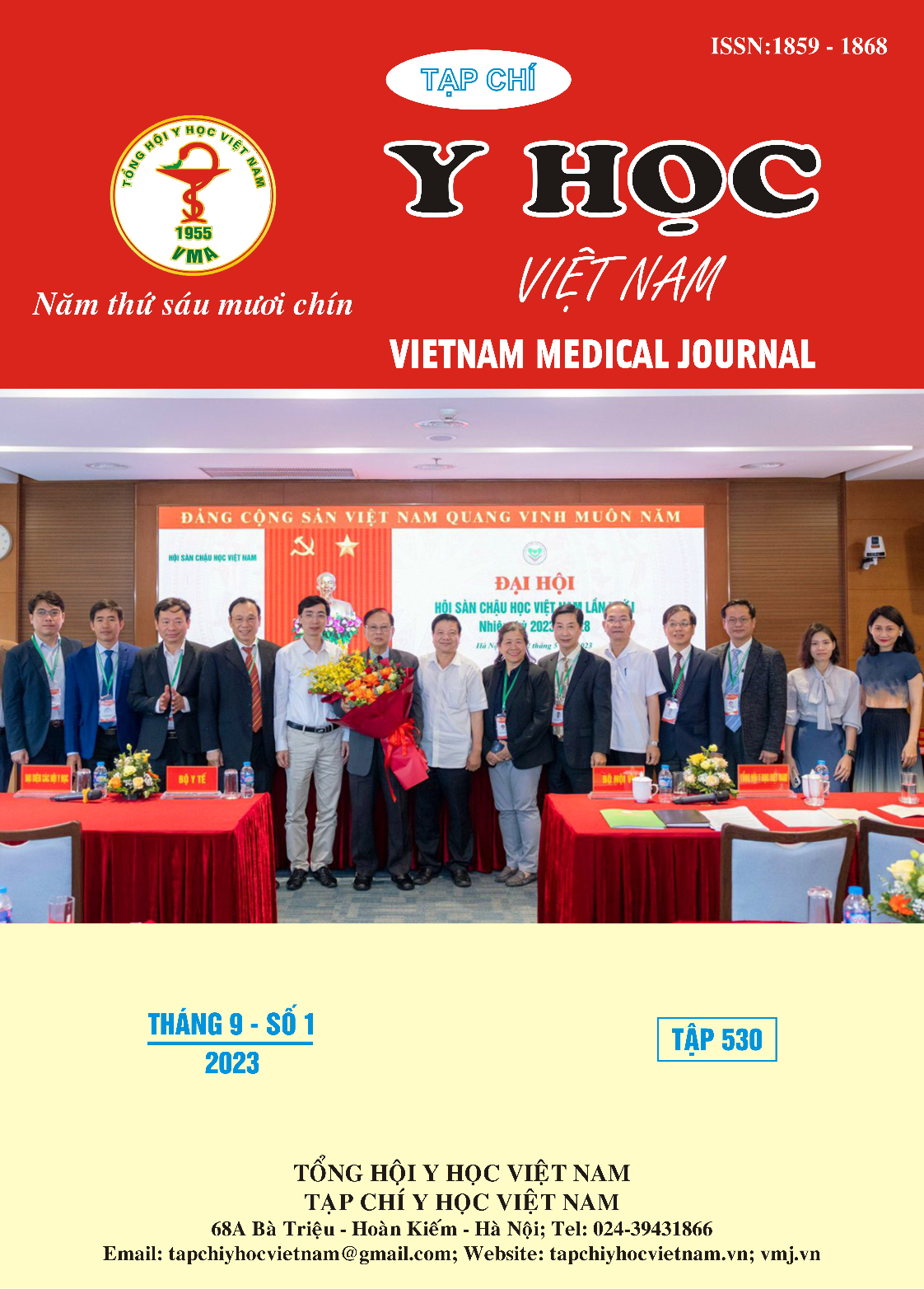ASSESSMENT OF ANTIBIOTIC SYMPTOMS AND TREATMENT RESULTS HOSPITAL INFECTIONS BY KLEBSIELLA PNEUMONIAE AT DEPARTMENT INVENTORY CARE, NGHEAN GENERAL FRIENDSHIP HOSPITAL
Main Article Content
Abstract
K.pneumoniae causes a variety of nosocomial infections, and the growing problem of antibiotic resistance over the past few decades has been a worldwide problem. Objectives: Evaluating antibiotic resistance and results of hospital antibacterial treatment due to Klebsiella pneumoniae at the Intensive Care Unit of Nghe An General Hospital. Subjects and methods: A cross-sectional descriptive study of 60 patients with resistance to K.pneumoniae hospital-acquired infections from January 2022 to August 2022. Results: The susceptibility of K.pneumoniae to the fosfomycin group was 62%; amikacin is 35%; carbapenems 20-30%; quinolones 10-12%. Mortality rate 26.67%; clinical response 56.7%; 40% microbiological response; appropriate empiric antibiotic 61.7%. Conclusion: The highest susceptibility of K.pneumoniae to the fosfomycin group was 62%; Mortality rate 26.67%; clinical response 56.7%; 40% microbiological response.
Article Details
Keywords
K.pneumoniae; hospital-acquired infections; antibiotic resistance
References
2. Hoai NTT, Giang NNT, An HV. Hospital-acquired infections in ageing Vietnamese population: current situation and solution. MedPharmRes. May 01, 2020; 4(2):1-8. doi:https://doi.org/10.32895/UMP.MPR.4.2.1
3. Dat VQ. Addressing the Burden of Antimicrobial Resistance in Vietnamese Hospitals. Oxford University Clinical Research Unit Vietnam. The Open University. December 2019;6(3):1-8. http://oro.open.ac.uk/70201/.
4. Vardakas KZ, Matthaiou DK, Falagas ME, Antypa E, Koteli A, Antoniadou E. Characteristics, risk factors and outcomes of carbapenem- resistant Klebsiella pneumoniae infections in the intensive care unit. The Journal of infection. Jun 2015;70(6):592-9.
5. Ranjbar R, Fatahian Kelishadrokhi A, Chehelgerdi M. Molecular characterization, serotypes and phenotypic and genotypic evaluation of antibiotic resistance of the Klebsiella pneumoniae strains isolated from different types of hospital-acquired infections. Infection and drug resistance. 2019; 12:603-611. doi: 10.2147/ IDR. S199639
6. Wang Z, Qin RR, Huang L, Sun LY. Risk Factors for Carbapenem- resistant Klebsiella pneumoniae Infection and Mortality of Klebsiella pneumoniae Infection. Chinese medical journal. Jan 5 2018; 131(1): 56-62. doi: 10.4103/ 0366-6999. 221267
7. Pranita D. Tamma, Aitken SL, Bonomo RA, Mathers AJ, Duin Dv, Clancy CJ. Infectious diseases society of america antimicrobial resistant treatment guidance: Gram-negative bacterial infections. IDSA 9/8/2020; 9(3):2- 38.doi: https://www.idsociety.org/ practice-guideline/ amr-guidance/
8. Najmeddin F, Shahrami B, Azadbakht S, et al. Evaluation of Epithelial Lining Fluid Concentration of Amikacin in Critically Ill Patients With Ventilator-Associated Pneumonia. Journal of intensive care medicine. Apr 2020;35(4):400-404. doi:10.1177/0885066618754784


